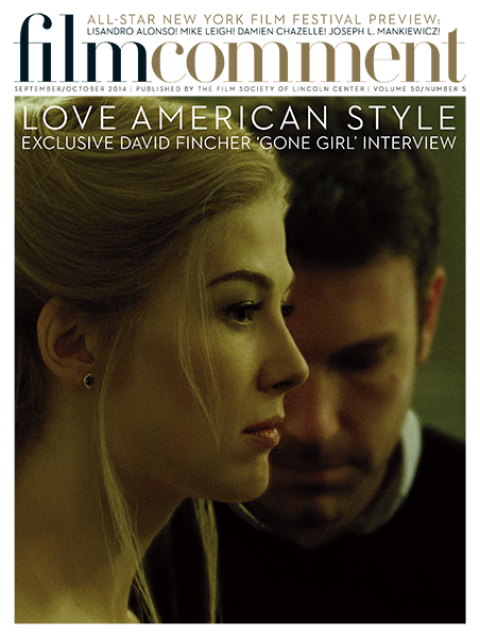
Is he Clouseau or Columbo? The bumbling rural police detective in Bruno Dumont’s Li’l Quinquin appears to have only the most tenuous grasp of the grisly mystery uncovered in his sleepy farm community: human body parts are turning up inside the corpses of massacred cows. Monsieur le Commandant—sporting a cartoon mustache, clad in granddad windbreaker, constantly and ineffectually announcing his presence—is played by a nonprofessional equipped with a neck-straining assortment of tics that waylay every other line he utters. He takes his place among Dumont’s gallery of misfits and weirdos, united in clueless buffoonery or endearing mundanity; it’s kind of a one-joke conceit, but a reliable one.
To be broadcast this fall in four parts on French television, Dumont’s latest creation was shown in The Directors’ Fortnight at Cannes as a 197-minute feature where it commanded the wide screen. The title (borrowed from a French nursery rhyme) refers to an oval-faced rascal who, with his beloved girlfriend and Hardy Boy gumshoeing, is something of a mascot of backwoods independence and righteous values. The Nord-Pas-de-Calais setting brings us back to Dumont’s L’Humanité (99), but Quinquin’s gleefully protracted comedic sequences suggest that the filmmaker may have a better (or deeper) sense of humor than critics have credited him with.
While Dumont layers in and declares themes of good and evil, the traces of violence are treated less like the moral rot of other rural detective sagas, and more like a bloodily organic outgrowth of primitive human nature. In that context, M. le Commandant’s ridiculous air of wide-eyed bafflement seems more and more like a kind of idiot-savant wisdom.








